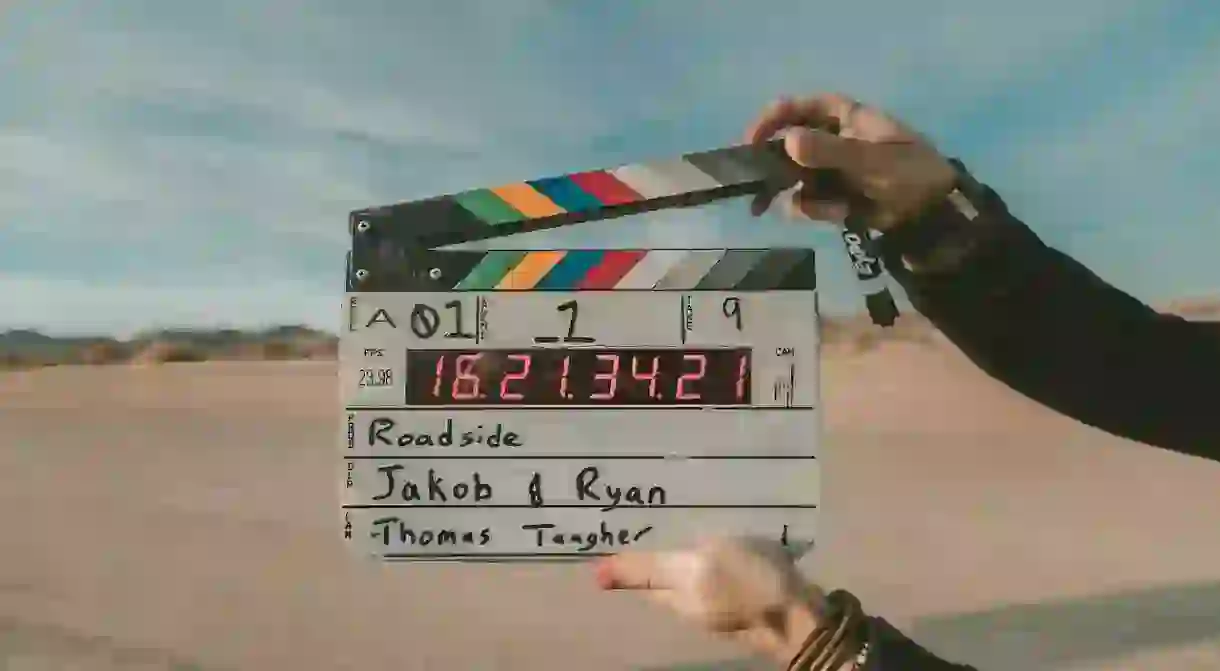7 Israeli Movies That Send a Strong Message

The film industry in Israel is as vibrant as it is diverse, with an array of Israeli directors displaying a level of intelligence and skill that has seen them win awards at home and abroad. These movies not only present their own unique, thought-provoking messages, but also provide us with great insights into the inner workings of contemporary Israeli society and the problems it faces.
Scaffolding (2017)
Matan Yair’s debut feature won best feature at the prestigious 2017 Jerusalem Film Festival. It is a poignant story that follows an underprivileged and highly troubled student named Asher. With the help of a patient and committed teacher, Asher embarks on a journey of self-awareness and development, however tragedy lies just around the corner. This story, which takes place just north of Tel Aviv in Hertzliya, is a powerful depiction of Israel’s underclass, a strained father-son relationship, and the challenges faced by those on the peripheries of Israeli society. It resonates further due to the fact it is based on Yair’s real life experiences as a teacher, and that Asher is played by a former student of his.
Lebanon: The Soldier’s Journey (2009)
Samuel Maoz’s debut feature won the Golden Lion at the 2009 Venice Film Festival for its intense, claustrophobic portrayal of Israeli soldiers in a tank during the 1982 Israel-Lebanon war. Based on his own traumatic experience as a tank gunner during this conflict, the movie is almost entirely shot within the confines of this tank. The film is a riveting and authentic depiction of the horrors of war and the psychological trauma it breeds.
Foxtrot (2017)
Maoz’s latest film, Foxtrot, has been widely praised for its idiosyncratic style and sharp critique of contemporary Israeli society. It is split into three distinct parts: the first depicts the grief and anger of the Feldman family after being informed by Israeli army officers that their son, Yonatan, died in the line of duty. Maoz then takes us to a starkly different setting, a remote border patrol in the desert manned by four young Israeli soldiers, including Yonatan. It depicts the sheer boredom and banality of their job and the moral conundrums imposed upon young Israelis by the IDF. The final part returns to the city with a dramatic portrayal of the grieving parents, ultimately sending a critical and profoundly sad message of war’s futility and the inescapable nature of loss and despair.
Apples from the Desert (2014)
Matti Harari and Arik Lubetzki’s film provides a poignant insight into the lives of women within Israel’s Orthodox Jewish population. Rivka, a young Orthodox woman in Jerusalem, falls in love with a secular and liberal Israeli Jew called Dubi. She chases her dream of personal liberation and follows him to his kibbutz in the countryside, rejecting the life she was brought up in. Her devastated parents eventually find her and slowly begin to accept her decisions. Through this touching process of familial reconciliation, this film has a far-reaching message of the power of love to transcend even the harshest of family conflicts and religious conservatism.
Waltz With Bashir (2008)
Ari Folman’s masterful and profoundly moving animated documentary-film revolves around his attempts to reconstruct the events that led to the massacre of Palestinians at the Sabra and Chatila refugee camps during the 1982 Israel-Lebanon war. Wrestling with his own guilt and nightmares – Folman was serving at the time in the Israeli army – he sets off to interview his former army comrades and come to terms with Israel’s responsibility in enabling a Christian militia to commit this atrocity. The devastating result sends a fierce anti-war statement that will stay in the memory for a long time.
https://www.youtube.com/watch?v=_J9uoLMhMhs
Sand Storm (2016)
Written and directed by Elite Zexer, this family drama sends a powerful feminist message through its critique of the patriarchal and oppressive traditions within Israel’s Bedouin minority. Set in Israel’s vast Negev Desert in the south, the plot revolves around the fallout after a family’s 18 year old daughter falls in love with a boy from a different tribe. It offers a highly nuanced depiction of family relationships and demonstrates the destructive and wide-reaching impact that archaic, deep-rooted customs can bring.
Junction 48 (2016)
Israeli American Udi Alon’s award-winning film, which is soon to be broadcasted worldwide on Netflix, presents a fierce criticism of the Israeli government. The plot revolves around a young Arab-Israeli couple from the gritty city of Lod in central Israel. Both are musicians (Tamer Nafar, the frontman of outspoken Palestinian hip hop group DAM, plays a version of himself), struggling to succeed in the face of oppression from the Jewish Israeli society and elements of fundamentalism and conservatism within Israel’s Arab community. This is a politically charged film that presents an unflinching, unsubtle account of the Palestinian experience in Israel today.













